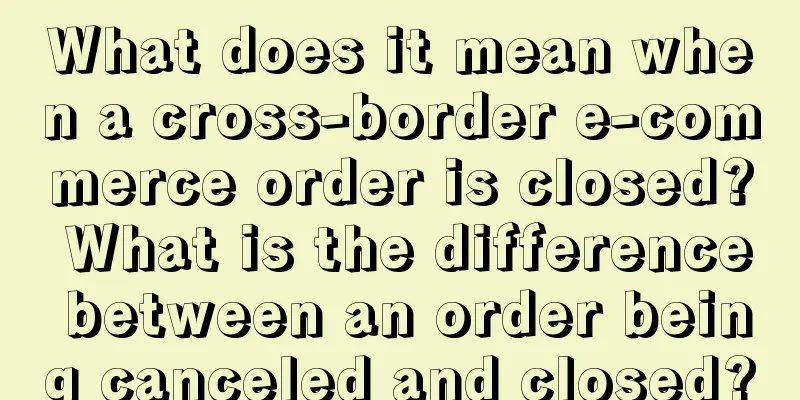What strategies can be adopted in Amazon operations? Six common Amazon operation models

|
Amazon is one of the world's largest e-commerce platforms. With its powerful online sales and logistics distribution system, it has attracted many merchants to settle in. To successfully operate on Amazon, you need to master some strategies and understand Amazon's operating model. Let's discuss it in detail below. In Amazon operations, the following strategies may help you improve sales and brand image: Optimize your product listings: Product titles, images, descriptions, and other elements are important factors that influence consumers’ purchasing decisions. Make sure to use high-quality images, write attractive titles, and provide detailed product descriptions. Keyword optimization: Choosing the right keywords for your product can help boost your product ranking in search results. Use a keyword tool to find keywords related to your product and incorporate them into your product title and description. Provide excellent customer service: Responding quickly to customer inquiries and complaints and providing a full range of after-sales services can help build a good reputation for the brand and attract more repeat purchases and recommendations. Manage inventory: Update inventory information in a timely manner to avoid out-of-stock or excess inventory to ensure timely delivery of orders and reduce storage costs. Take advantage of Amazon’s marketing tools, such as Sponsored Products, to display your products to relevant consumers through keyword targeting. Amazon's operating models can be divided into the following six categories: Amazon Direct (1P): Amazon purchases products directly from suppliers and then sells them on the platform. Amazon Marketplace (3P): Merchants list their products on the Amazon Marketplace and are then responsible for shipping. Fulfilled by Amazon (FBA): Merchants send products to Amazon's warehouse, and Amazon is responsible for the storage, packaging and delivery of the products. Seller Fulfilled Prime (SFP): After merchants meet Amazon's service requirements, they can use Amazon's Prime logo and are responsible for shipping themselves. Dropshipping: After receiving an order, the merchant provides the order information to the supplier, and the supplier directly sends the product to the consumer. Hybrid: Merchants can use several of the above models at the same time and flexibly choose the appropriate operating model based on different product types and sales strategies. |
<<: Can I only log in to Amazon with one computer? Can I only log in with one IP?
>>: Can mainland China shop on Amazon? How to shop on Amazon in the United States?
Recommend
What is the normal conversion rate of Amazon products? How to improve the conversion rate of Amazon products?
For every merchant, what they want to see most is ...
Young people who once dared not to buy jewelry have become bolder in the live broadcast room
With the rise of live streaming e-commerce, the je...
What documents are needed for a company to settle foreign exchange? How long does it take for a company to settle foreign exchange?
Foreign exchange settlement by enterprises refers ...
Douyin, Kuaishou, and Meituan’s food delivery “Three Kingdoms”
Driven by the wave of digitalization, the local li...
How much does it cost to start a cross-border e-commerce business? Which platform is better?
Now many friends want to do cross-border e-commerc...
Super detailed real-life examples of user portraits
In today's data-driven business environment, u...
The entire process of implementing data growth experiments
Data growth is the key to data analysis for data a...
Can I buy things on Amazon Japan and ship them to China? Can I ship directly to China?
Now many people choose to shop on Amazon. Shopping...
I run a guild in Southeast Asia: I have 5,000 anchors and I am in the top 10 in one year
Southeast Asia, with its huge population base and ...
Can Amazon change the price during its 7-day flash sale? How long does it take to register a flash sale for a new product on Amazon?
As one of the world's largest online shopping ...
I have been working in data for ten years, and this is the first time I have seen such a great data analysis method
In this era of information explosion, we receive n...
Live streaming sales have spread to Southeast Asia, and Tiktok has directly boosted sales
The trend of live streaming sales in China has spr...
Are all the products sold on Amazon genuine? Are the products sold by Amazon itself authentic?
If we want to buy overseas products, we can buy th...
How does Shopee Singapore ship goods? What should I pay attention to when shipping goods from Shopee?
Today I will introduce to you the content about op...
How to shop on Shopee in China? How to pay for shopping on Shopee?
Shopee is an e-commerce platform in Southeast Asia...









